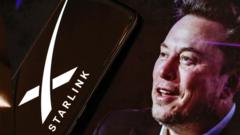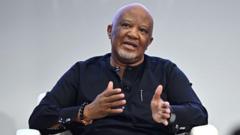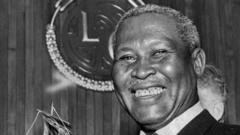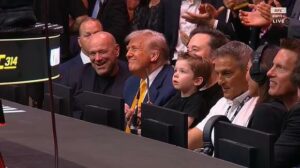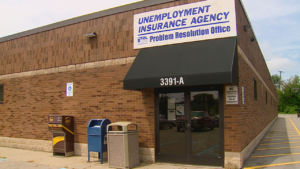The South African government, under President Cyril Ramaphosa, aims to invite Elon Musk to invest in his native country, yet his critique regarding the government's racial policies complicates this endeavor. Musk contends that existing laws mandating foreign firms to include Black ownership hinder the operation of his satellite internet service, Starlink, in South Africa.
Starlink's South African Hurdle: Ownership Controversy with Musk

Starlink's South African Hurdle: Ownership Controversy with Musk
Elon Musk's aspirations to launch Starlink in South Africa face challenges over ownership rules deemed discriminatory.
In response, Solly Malatsi, a key telecommunications official, is working on a directive that could allow satellite internet providers to secure operating licenses by investing in disadvantaged communities instead of adhering to the compulsory equity sales to Black investors. This proposed change, while aiming to facilitate Musk’s ambitions, faces opposition from critics who argue it neglects the need for transformative racial equity measures established post-apartheid.
Malatsi's initiative will undergo a public consultation with the Independent Communications Authority of South Africa (ICASA) before being implemented. Skeptics of this plan believe that easing Black ownership regulations may further entrench existing racial disparities and elevate Musk's influence in the country where he was born but has largely distanced himself from over the years.
Malatsi's initiative will undergo a public consultation with the Independent Communications Authority of South Africa (ICASA) before being implemented. Skeptics of this plan believe that easing Black ownership regulations may further entrench existing racial disparities and elevate Musk's influence in the country where he was born but has largely distanced himself from over the years.









